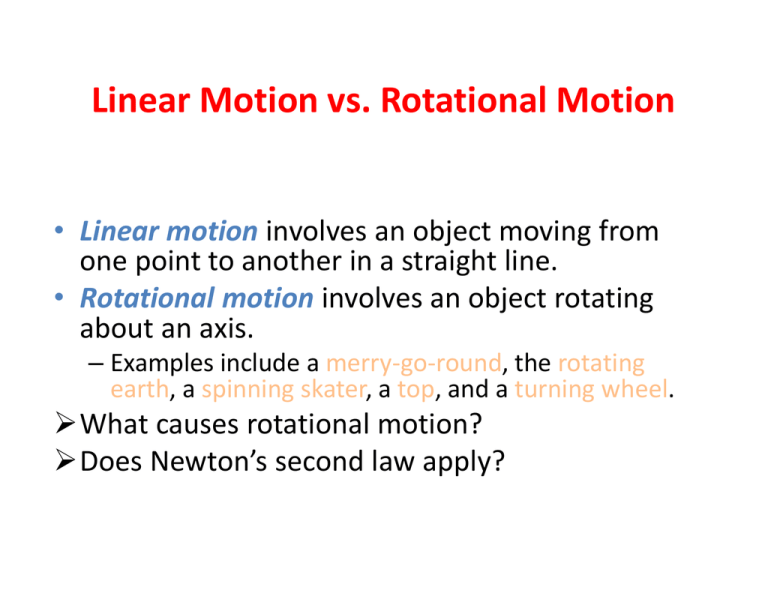
Linear Motion vs. Rotational Motion
It is a linear acceleration in a direction tangent to the circle at the point of interest in circular or rotational motion. Remember that tangential acceleration is parallel to the tangential velocity (either in the same direction or in the opposite direction.)
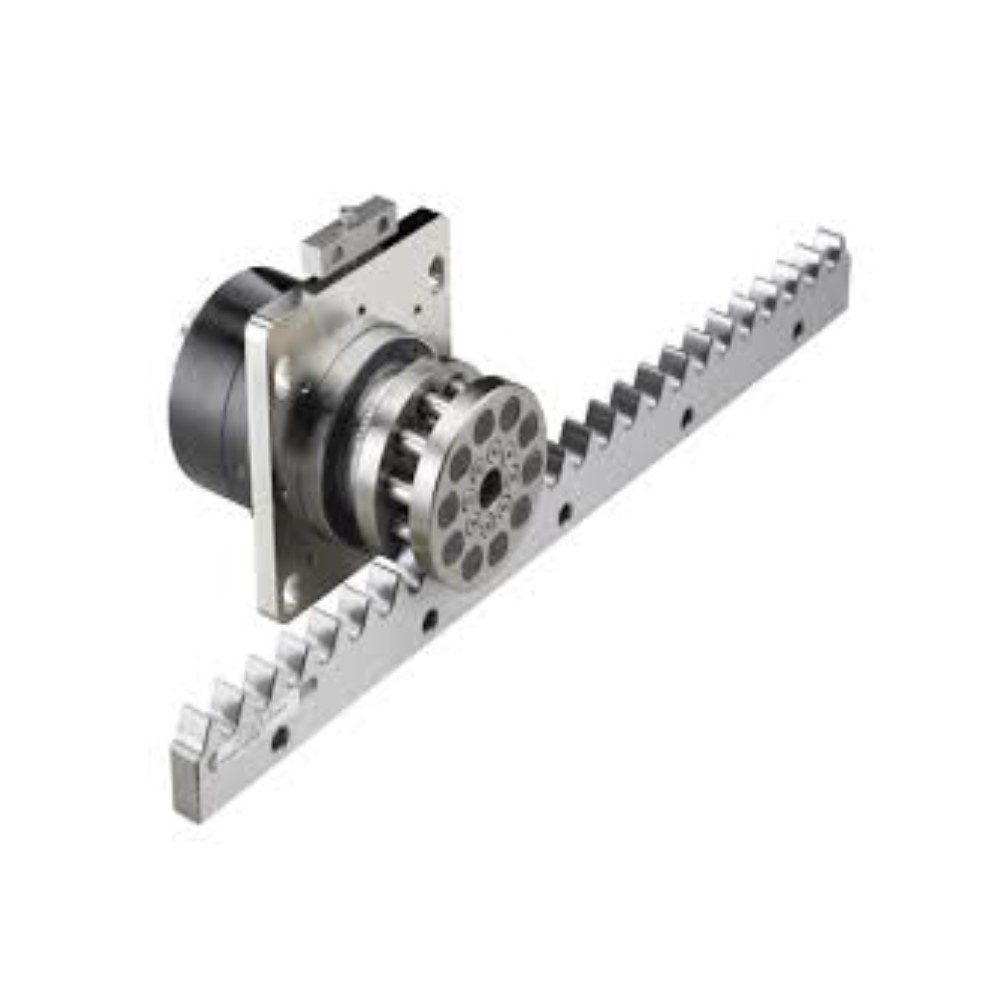
Linear and Rotary Motion Components Nayagi Industrial Technologies
These approaches might include the selection of a smaller more power-dense product; lightweighting the rolling elements in linear and rotary bearings; and drilling extra holes (between the mounting holes) in linear rails. IKO's ML Series is an example of a standard stainless-steel linear motion guide incorporating rolling bearing elements.

Simple Rotary to Linear Motion YouTube
Axis of rotation. The imaginary or actual axis around which an object may rotate. Average angular acceleration ( α. . ) Measure of how angular velocity changes over time. The rotational analogue of linear acceleration. A vector quantity with counterclockwise defined as the positive direction. SI units of radians s 2.

Training in 60 Seconds Rotary & Linear Motion (Part 3) YouTube
1. Both the linear stroke and the rotation of the closing spindles are derived and synchronized purely mechanically from the rotary motion of the carousel using cam disks (linear stroke) and gears with a magnetic clutch (rotation). 2. A servomotor is used for the rotation and is moved up and down.

Linear and Rotary Motion in one actuator YouTube
We Offer a Wide Range of Linear and Rotary Motion Components for All Industries. Learn More About Our Products or Speak to One of Our Engineers Today!

Rotary to Linear Motion Mechanism YouTube
Linear motion occurs when sufficient force is applied in line with the book's center of gravity, and a combination of linear and rotary motion results from a force directed left or right of center. Similarly, an object with a fixed axis, like a door or one of the body's limbs, rotates when the force is applied off center but does not rotate.

Rotary to Linear Motion MISUMI Blog
1.) The motion of object along the straight line is known as linear motion. Eg. Motion of children doing cycling, cars running on road etc. 2.) The distance travelled by object is always measured as straight line. 3.) If the starting point and ending point of motion is along a same straight path, then the magnitude of distance is equal to that.

Rotary to Linear Motion Mechanisms I Scotch Yoke Type 01 YouTube
Here, we are going to read two most important motions: linear motion, rotary motion, linear motion system, linear to rotary motion and vice-versa. Motion is said to be the movement of any object, body, or particle in any direction with respect to time and reference point. Time, speed, distance and displacement are the terms in which motion can.
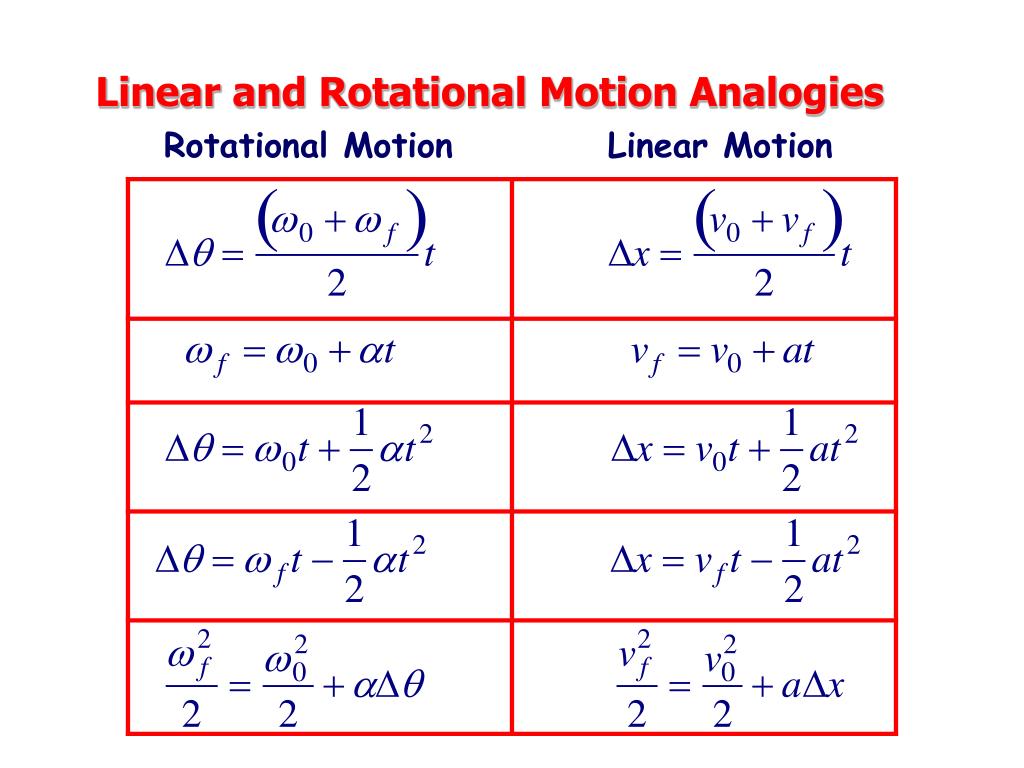
PPT Chapter 7 PowerPoint Presentation, free download ID2912872
Linear actuators are usually used in applications where loads need to be pushed, pulled, lifted, lowered, positioned, or rotated. Such movements are often required in the following industries: Food processing and packaging Automotive Material handling Factory automation Defense Aerospace Pharmaceutical and medicine devices Clean energy Printing
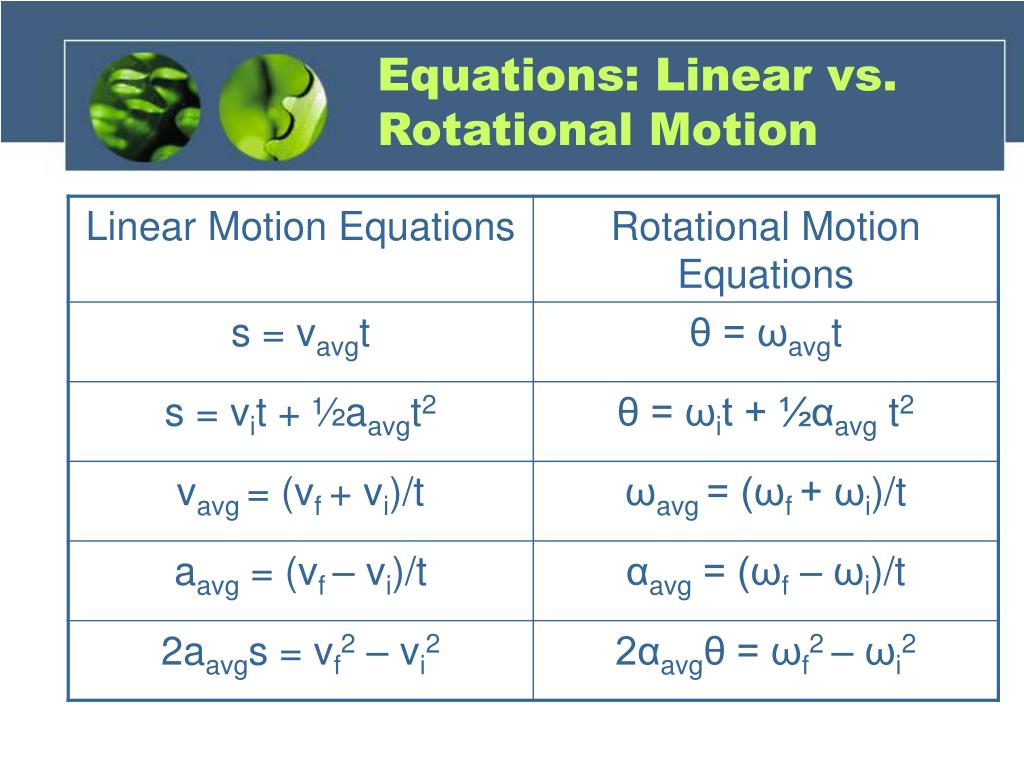
PPT Rotational Motion PowerPoint Presentation, free download ID814209
We can apply the definition of power derived in Power to rotational motion. From Work and Kinetic Energy, the instantaneous power (or just power) is defined as the rate of doing work, P = dW dt. If we have a constant net torque, Equation 10.8.4 becomes W = τθ and the power is. P = dW dt = d dt(τθ) = τdθ dt.

Rotary to linear motion mechanism, Autodesk Inventor. YouTube
Difference between Linear Motion and Rotational Motion Linear motion is on a straight road, whereas rotational motion is along a rotational axis. Before looking at the comparison between linear motion and rotational motion, let us look into some more detailed differences between both types of motion: View more
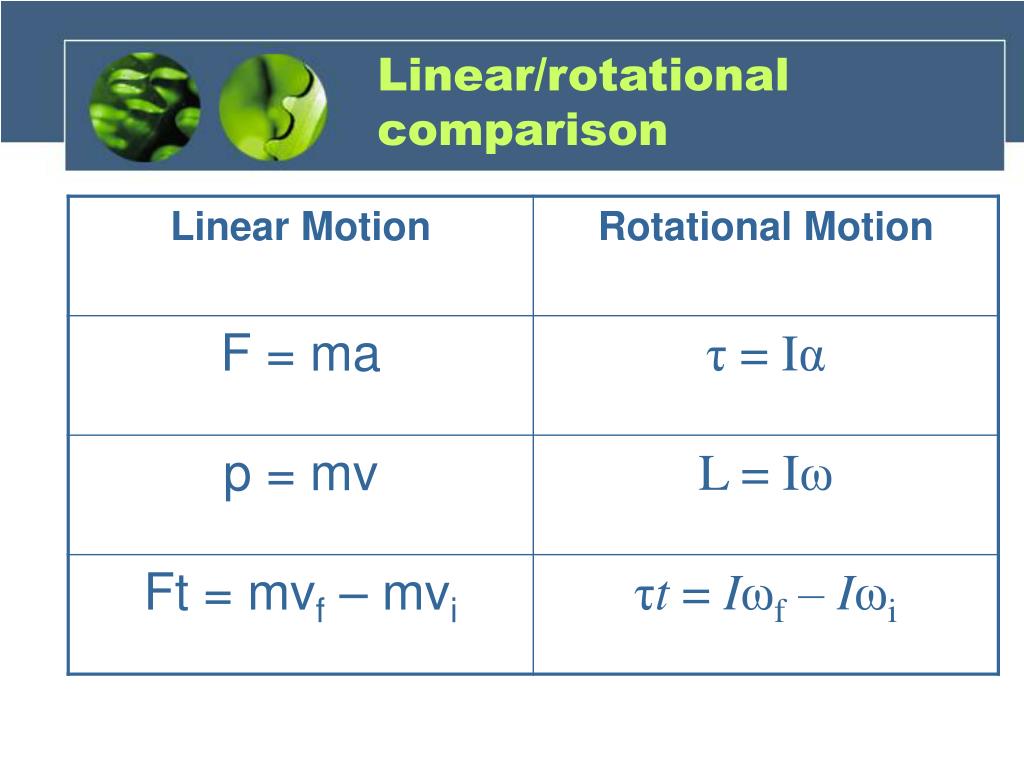
PPT Rotational Motion PowerPoint Presentation, free download ID814209
Rotary to Linear Motion 5 min read A slider-crank mechanism is a typical design which converts rotary motion into linear motion. It is achieved by connecting a slider and a crank with a rod. This mechanism is also utilized as a system that converts the reciprocating linear motion of an automobile engine into rotary motion. (Fig a)

9.1 Rotation Angle and Angular Velocity Douglas College Physics 1107
One Axis Linear and Rotary Motion Positioning. This Ball Spline video is presented to clarify the difference between Ball Screw Splines and Ball Splines. The Ball Spline nut, as you will see in the video, travels along the shaft using its straight grooves as the guides for the rolling elements.

507 Mechanical Movements No 327 Rotary motion to Linear motion YouTube
Linear Actuators (754 suppliers) Electric linear actuators have an output rod that provides linear motion via a motor driven ball screw, lead screw or ACME screw assembly. The actuator's load is attached to the end of a screw or rod and is often unsupported. View Suppliers.

Relating linear and rotational motion YouTube
Types of Linear motion along with Rotary motion and Oscillatory motion are also described. Below are some examples to have a clear understanding of uniform motion and nonuniform motion. Eg: If a car is traveling at a speed of 50 km/hour then it will cover a distance of 1 km/minute. In this sense, the motion of car acceleration is uniform.

Linear to rotary motion converter YouTube
motion. The four types of motion are: linear rotary reciprocating oscillating Linear motion moves something in a straight line, eg a train moving down a track: Rotary motion is.